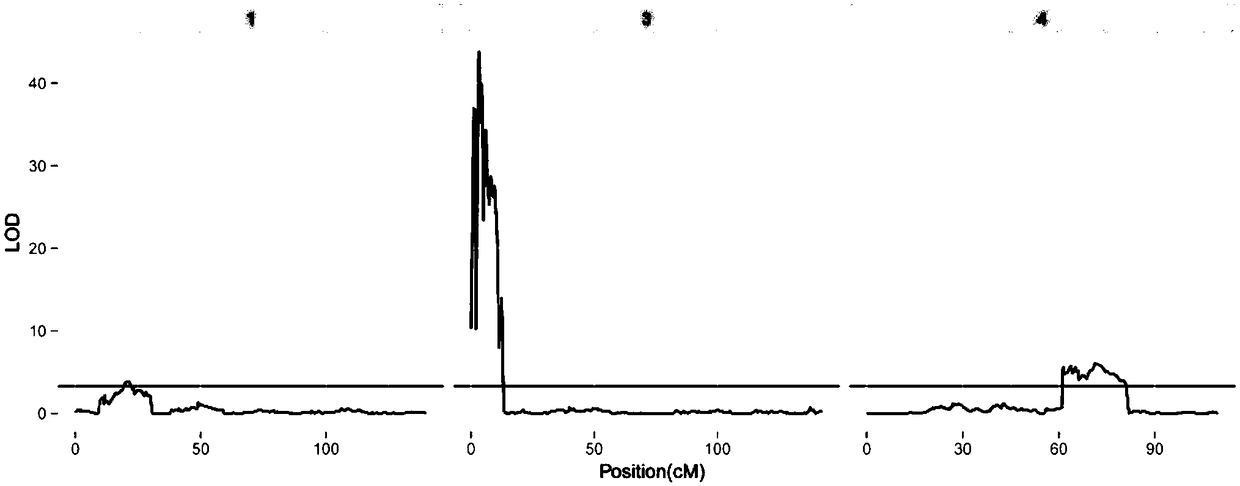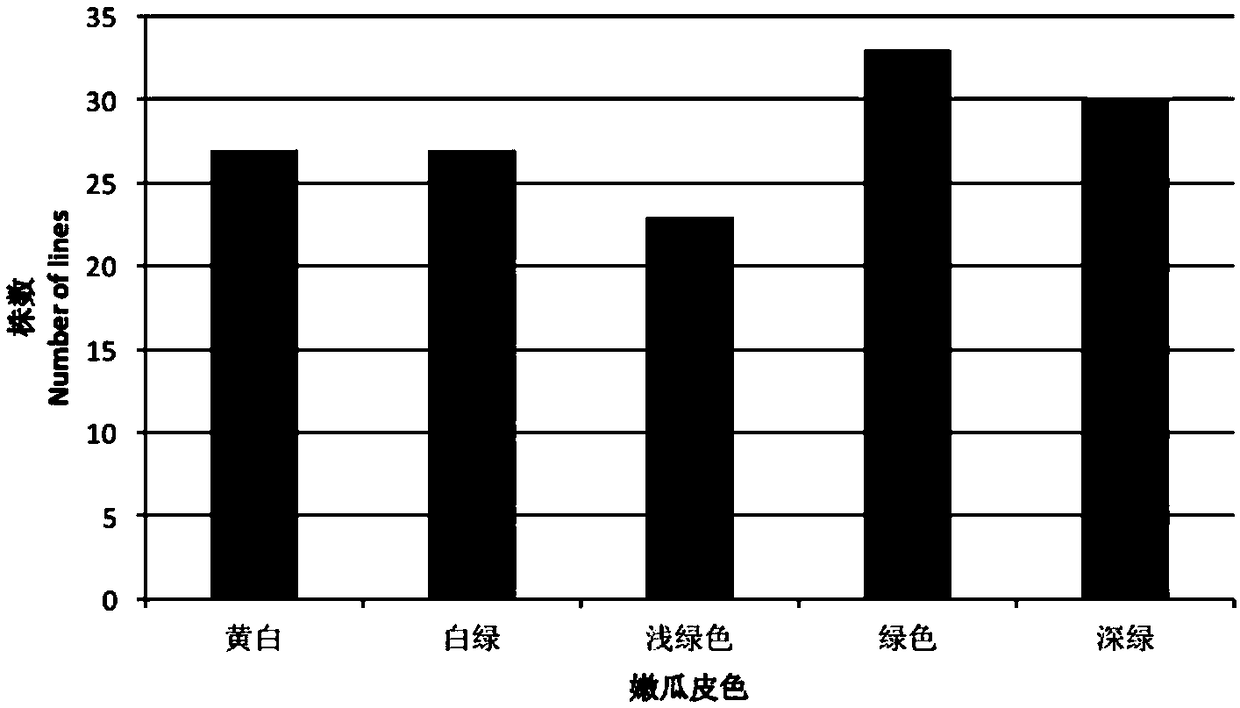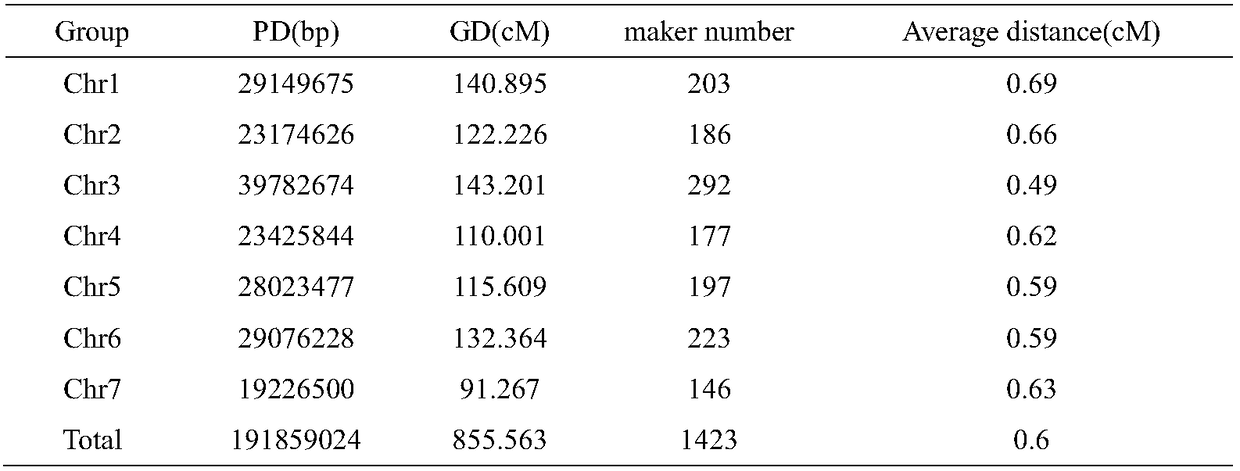Method for identifying quantitative trait loci (QTL) and genes related to tender skin colors of cucumbers
A cucumber and peel technology, applied in the field of molecular biology, can solve the problems of long marker distance, unpredicted genes, etc.
- Summary
- Abstract
- Description
- Claims
- Application Information
AI Technical Summary
Problems solved by technology
Method used
Image
Examples
Embodiment 1
[0023] Embodiment 1: A kind of identification and the method for QTL and gene relevant with cucumber tender peel color provided by the present invention comprise the following steps, (1) select female parent and male parent, female parent and male parent are crossed to obtain F1, through single grain The recombinant inbred line RIL was constructed by the traditional method, and the female parent, male parent, and RIL strain were planted in the greenhouse until tender fruit grew; for example, the advanced inbred line 1613 was used as the female parent, which is a strong female with green peel and The thorns are dense, the thorns are white, the melon is stick-shaped, and long; the male parent of the advanced inbred line JD7 is a strong male, the peel is white, the thorns are sparse, and the melon is cylindrical and short. The two parents were crossed to obtain F1, and the recombinant inbred line (RIL, F13) was constructed by the method of single seed transmission. The test popula...
PUM
 Login to View More
Login to View More Abstract
Description
Claims
Application Information
 Login to View More
Login to View More - R&D
- Intellectual Property
- Life Sciences
- Materials
- Tech Scout
- Unparalleled Data Quality
- Higher Quality Content
- 60% Fewer Hallucinations
Browse by: Latest US Patents, China's latest patents, Technical Efficacy Thesaurus, Application Domain, Technology Topic, Popular Technical Reports.
© 2025 PatSnap. All rights reserved.Legal|Privacy policy|Modern Slavery Act Transparency Statement|Sitemap|About US| Contact US: help@patsnap.com



